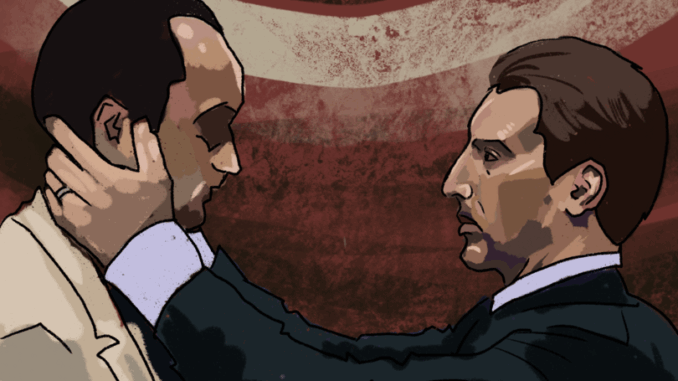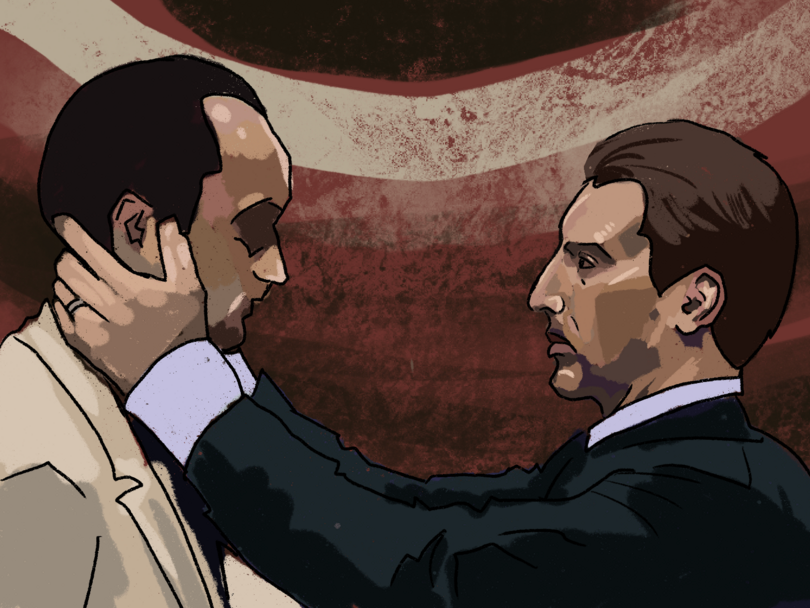
A Cinematic Masterpiece That Redefined Storytelling
Few films in cinematic history have left as profound a mark as The Godfather. Directed by Francis Ford Coppola and based on the novel by Mario Puzo, this 1972 epic crime drama is not just a movie—it is a cultural phenomenon. With its gripping narrative, iconic performances, and unforgettable lines, The Godfather transcends genres, becoming a symbol of excellence in storytelling and filmmaking.
Blood Ties and Business
Set in post-World War II America, The Godfather follows the powerful and secretive Corleone family, an Italian-American Mafia dynasty. The patriarch, Vito Corleone (played masterfully by Marlon Brando), is the Don who balances business with a strong sense of family loyalty. When an attempt on his life shakes the family’s foundations, his youngest son, Michael (Al Pacino), is reluctantly drawn into the criminal underworld he once tried to avoid.
What begins as an act of protection quickly turns into a transformation. Michael evolves from an innocent war hero into a ruthless leader, ultimately taking his father’s place and solidifying the Corleone family’s dominance in the mafia world. The movie captures this transformation with chilling precision.
Performances That Made History
-
Marlon Brando as Vito Corleone – His portrayal earned him an Academy Award and created one of the most imitated characters in film history. The raspy voice, the subtle gestures, and the commanding presence made Brando’s Don Corleone unforgettable.
-
Al Pacino as Michael Corleone – Pacino’s performance is nothing short of brilliant. His shift from a reluctant outsider to a calculating mob boss is a slow-burning metamorphosis that remains one of the most compelling character arcs in cinema.
-
James Caan (Sonny Corleone), Robert Duvall (Tom Hagen), and Diane Keaton (Kay Adams) also delivered standout performances that contributed to the film’s emotional depth and complexity.
More Than Just a Crime Film
While The Godfather is rooted in the world of organized crime, it explores universal themes that resonate far beyond the genre:
-
Family and Loyalty: At its core, the film is about family—the bonds that hold it together and the sacrifices made to protect it.
-
Power and Corruption: The story delves into how power is acquired, maintained, and ultimately corrupts even the most principled individuals.
-
Tradition vs. Modernity: The clash between old-world values and new-world ambitions is symbolized through the generational divide between Vito and Michael.

A Work of Art
Gordon Willis, known as the “Prince of Darkness,” brought a haunting visual style to the film with his use of shadow and light. Coppola’s direction is deliberate and poetic, allowing each scene to breathe while keeping tension simmering beneath the surface. The film’s pacing, score (by Nino Rota), and dialogue contribute to its operatic tone, making every frame feel like a painting.
A Film That Changed Everything
Since its release, The Godfather has become a cornerstone of American cinema. It won three Academy Awards, including Best Picture, and continues to influence filmmakers around the world. It introduced audiences to the inner workings of the Mafia in a way that was both humanizing and horrifying.
Phrases like “I’m gonna make him an offer he can’t refuse” have entered popular culture, and the film has inspired countless parodies, homages, and academic discussions. Its influence can be seen in modern classics like The Sopranos, Scarface, and even Breaking Bad.
A Trilogy That Stands the Test of Time
While the original film stands strong on its own, The Godfather Part II (1974) is often hailed as one of the rare sequels that surpasses the original, deepening the saga with flashbacks and expanding Michael’s descent into darkness. The Godfather Part III (1990), though more polarizing, offers a somber conclusion to the Corleone saga.
Together, the trilogy is an epic exploration of American identity, morality, and the cost of ambition.
An Offer You Can’t Refuse
More than five decades later, The Godfather remains a masterclass in storytelling, acting, and direction. It’s a film that rewards multiple viewings, offering new insights each time. Whether you’re a longtime fan or a first-time viewer, entering the world of the Corleones is a cinematic journey that will leave you awed, haunted, and deeply moved.
If you’ve never seen The Godfather, now is the time. And if you have—it’s always worth going back.
